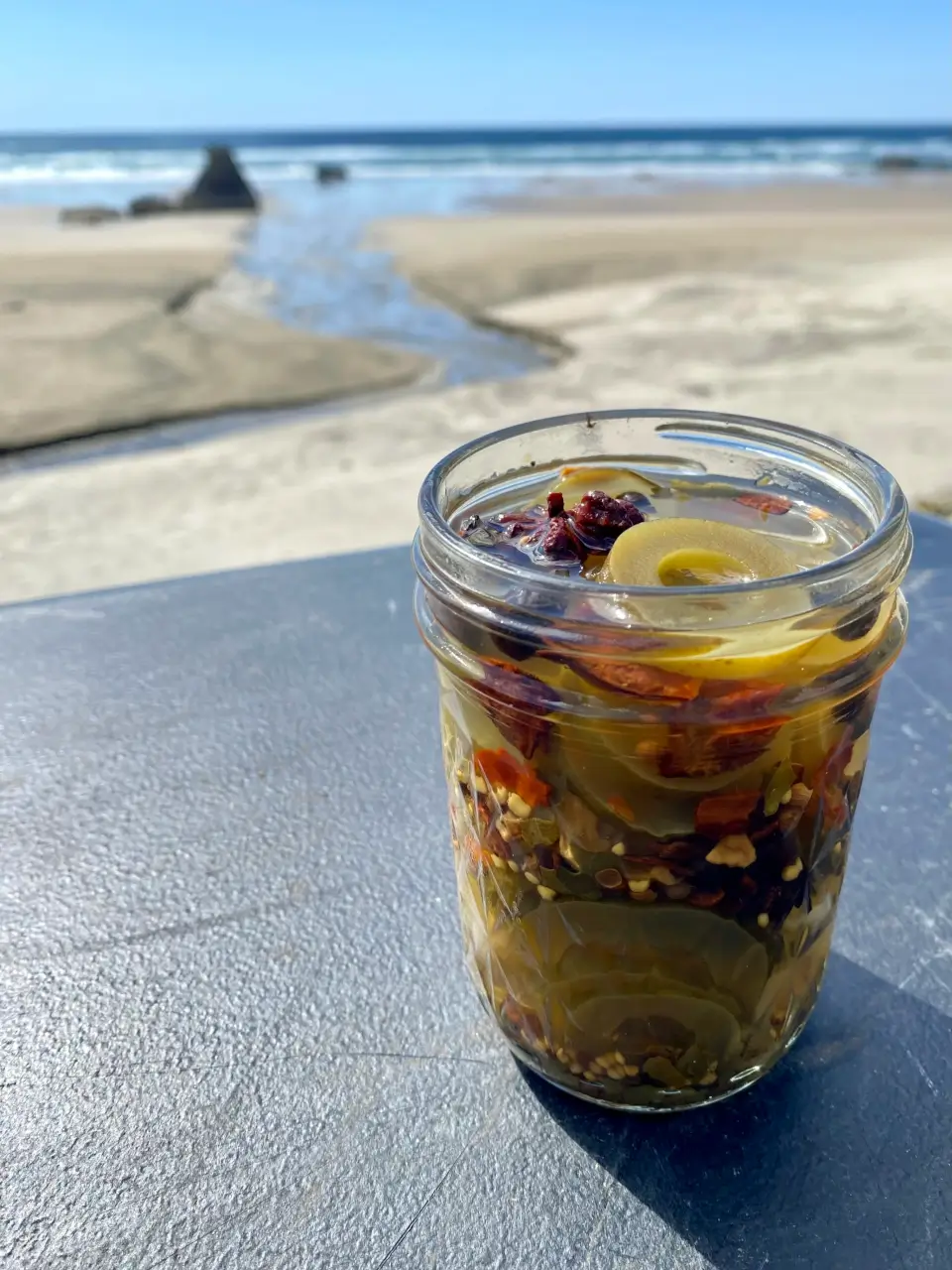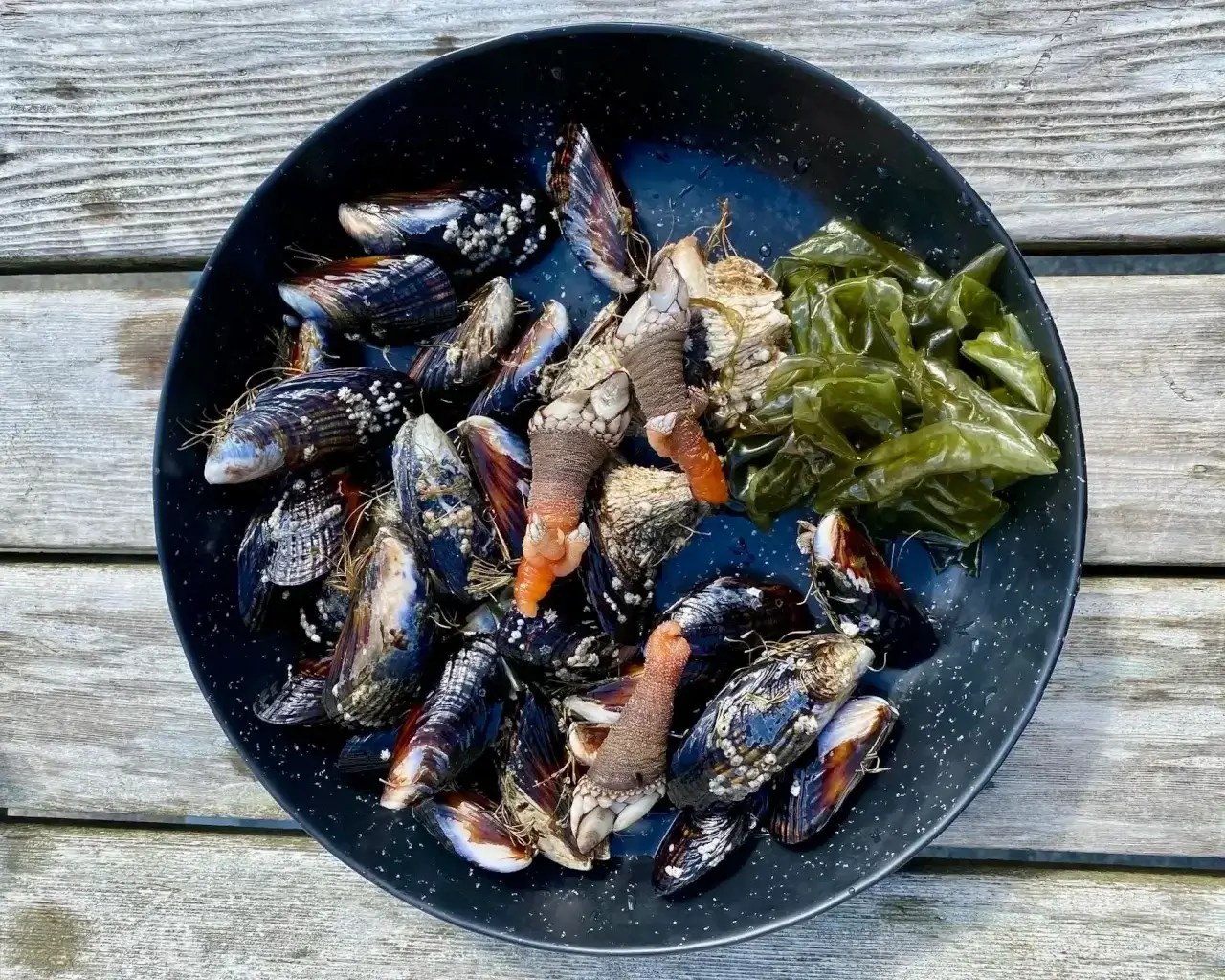The day that I met Alanna Kieffer was spectacularly sunny with a light saline breeze—a rarity on the moist Oregon coast. It was my first go to to Cannon Seashore, nevertheless Kieffer gave the look to be utterly at home as she led me all through the pale, tender sand to a cluster of craggy, darkish rocks on the perimeter of the ocean. As a coastal forager and educator, this stretch of the Pacific Coast is her office, her classroom, her kitchen, and the inspiration for founding her private agency, Shifting Tides.
Kieffer primarily based Shifting Tides in February 2023 to indicate people about intertidal ecosystems—the distinctive space the place the ocean meets the land, which transforms hour by hour as a result of the tide flows in and out—and the best way they impression our day-to-day lives, notably by way of what we eat.
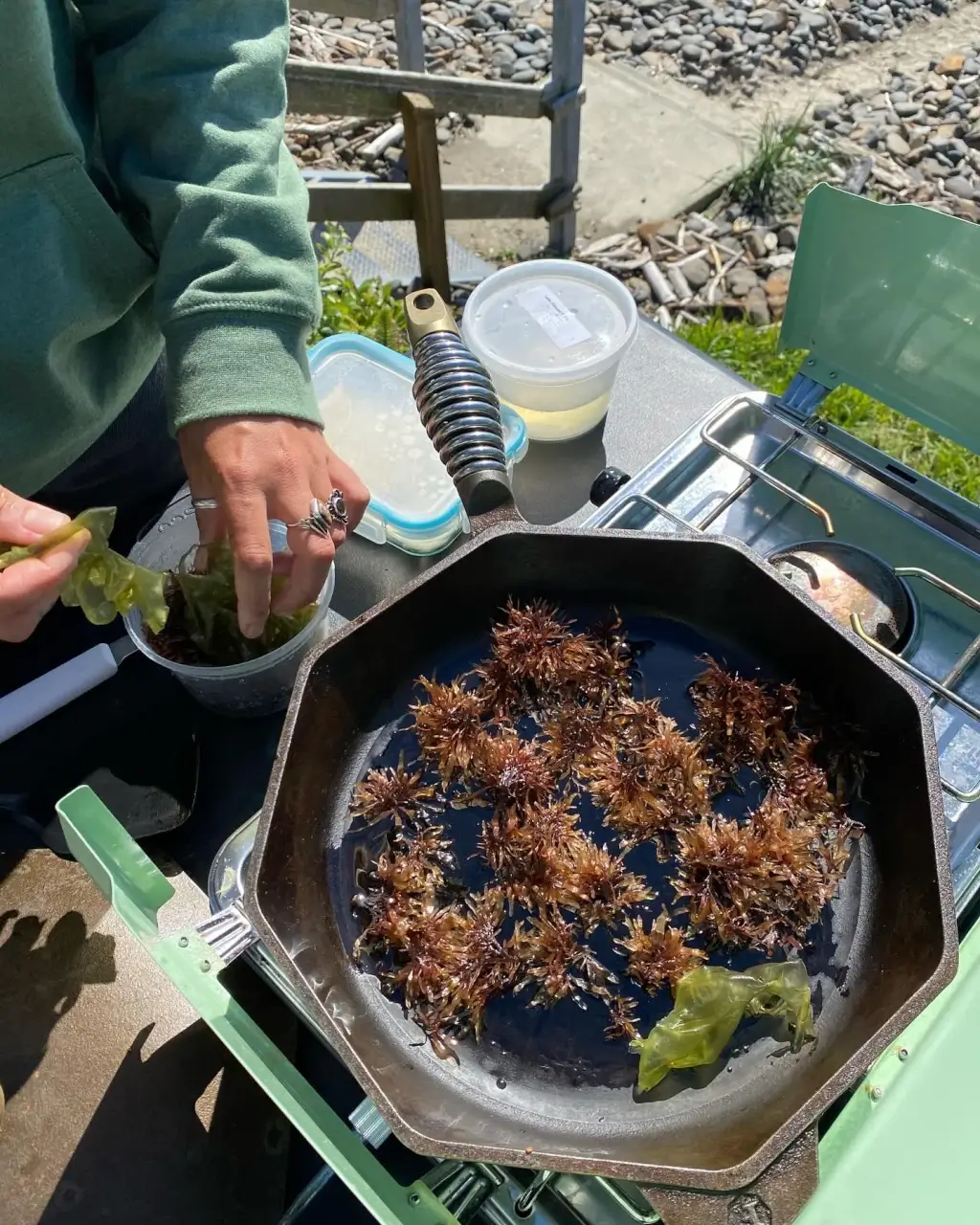

Kieffer leads friends on excursions of the Oregon coast, the place she harvests after which prepares a meal with wild seaweed and shellfish correct on the seaside. I had beforehand obtained a state license for the correct to reap with her-/barely than merely watch—so, after she demonstrated the proper technique, I was handed a small knife and we labored side by side to scrupulously take away mussels and gooseneck barnacles from a big triangular rock slick with saltwater. Enthusiasm radiated from Kieffer as she equipped advice and information, however it certainly was frilly neon inexperienced seaweed that precipitated her to really mild up.
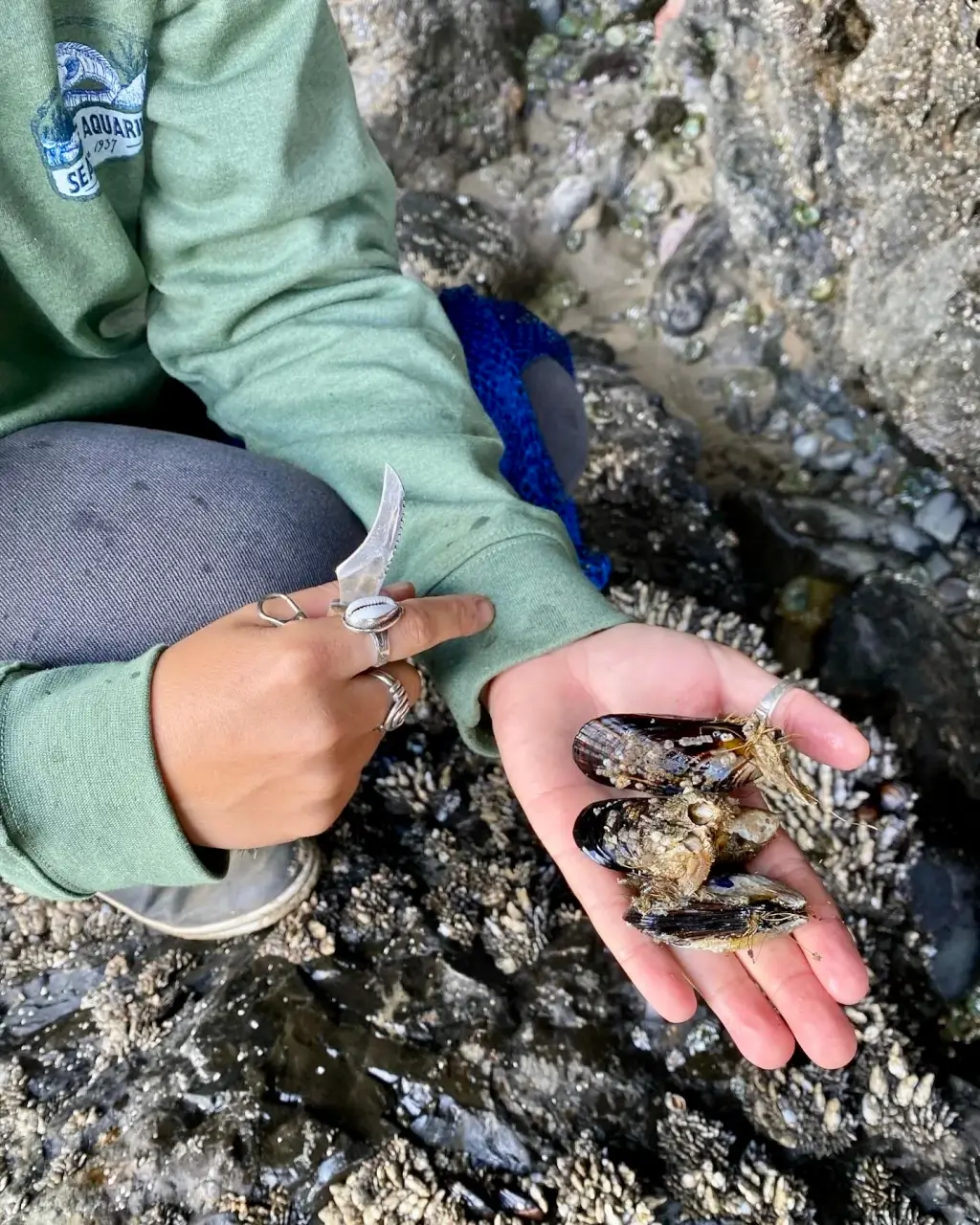

“In Oregon, the seaweed harvest season is from March to June fifteenth, with a prohibit of a one-gallon bag of seaweed per day and solely three baggage per 12 months,” says Kieffer . “The foundations are such that you should use a knife or scissors to remove seaweeds, and it is actually illegal to tug the holdfast, or root-like anchor, from the rock. This permits them to regrow 12 months after 12 months. It does regenerate shortly, nevertheless we should at all times in no way be harvesting all of what a given area has and should be leaving so much intact for wild species to take advantage of.”
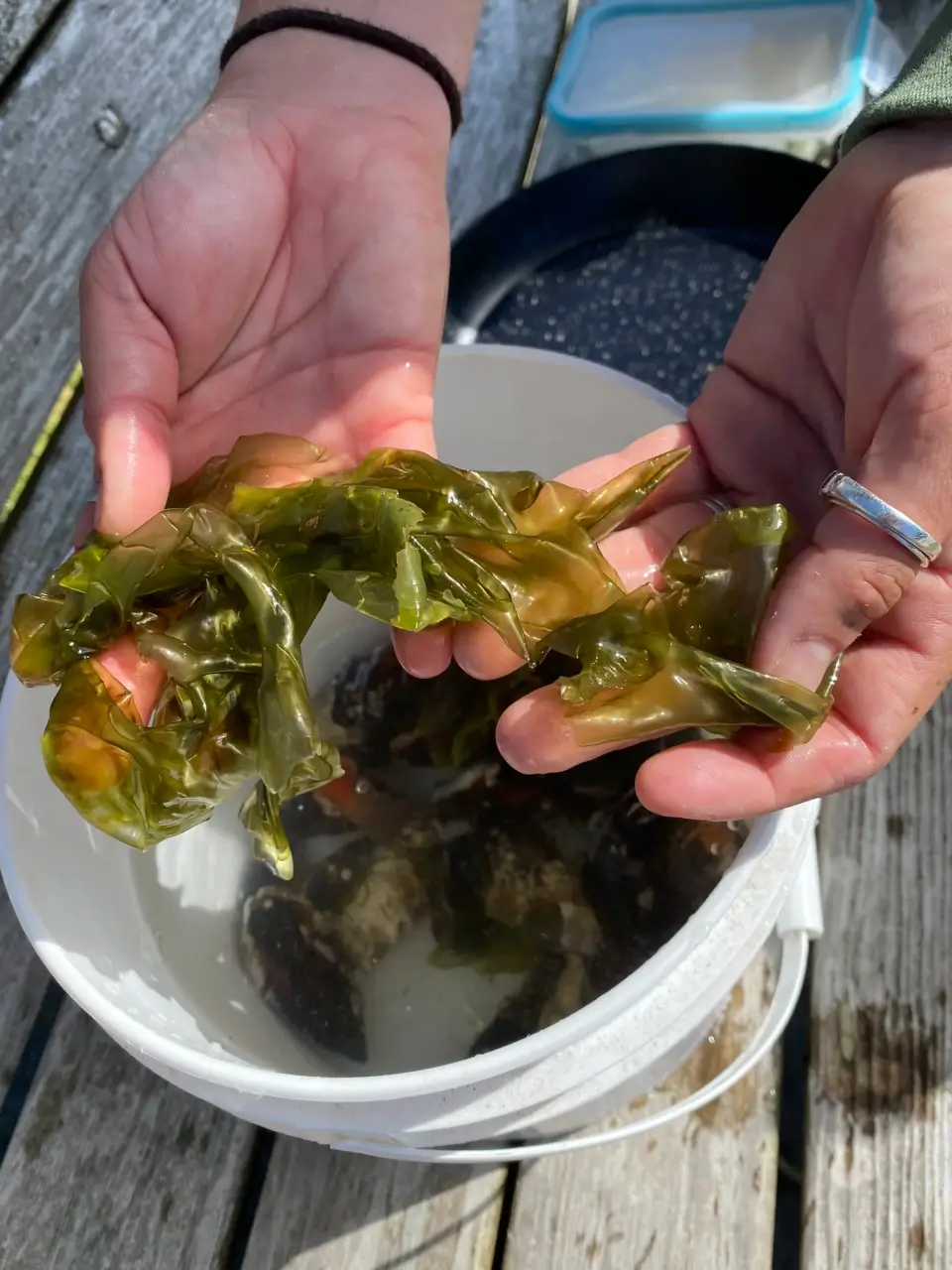

Seaweed is a key a part of what Kieffer considers to be “native climate delicacies,” which includes foraged and farmed meals that positively impression our native climate. A serious occasion is the wild bull kelp pickles that she makes and serves to people who be a part of her with Shifting Tides, which have a pleasantly vinegary, spicy style and company crunch. Members even have a chance to try the dulse seaweed that she farms and pan fries in olive oil for a delightfully crispy, salty snack. All through my tour, I sampled the dulse sooner than and after Kieffer cooked it, and I appreciated it in its raw kind, too—mildly briny in type and barely chewy; paying homage to the ocean, nevertheless not so utterly completely different from terrestrial leafy greens. Given the pliability of this specific seaweed, she makes use of it in and on all forms of meals, along with hand-crafted pasta, vegan Caesar salad dressing, and the whole thing bagel seasoning.
Seaweed is the primary focus of Kieffer’s work as an educator, forager, and farmer. When she is not going to be primary Shifting Tides excursions, Kieffer works as part of a small workforce at Oregon Seaweed, a neighborhood seaweed farm the place she has been serving to to develop a spread often known as Pacific Dulse since 2021. Quite a lot of their seaweed is obtainable current (about $15 per pound) or dried to shut by consuming locations and residential cooks, nevertheless moreover it’s on the market for worldwide supply. As plant-based and environmentally conscious meals traits grow to be additional widespread, Oregon Seaweed is correctly poised to deal with the rising world market demand for seaweed, which was valued at larger than $17 billion in 2023 and is predicted to double throughout the subsequent decade.
“One in every of many points I like about every of my jobs is that there is not going to be two days in per week that look the similar,” says Kieffer. “With Oregon Seaweed, some days I’m exterior on the farm all day, cleaning tanks, drying and packaging seaweeds; others, I’m at consuming locations educating cooks the best way to cook dinner dinner dulse, or at markets talking to shoppers about it; others, I’m on the laptop all day answering emails or dealing with on-line product sales. For Shifting Tides, it’s the similar—there’s so much time exterior at low tide educating people and cooking with of us.”
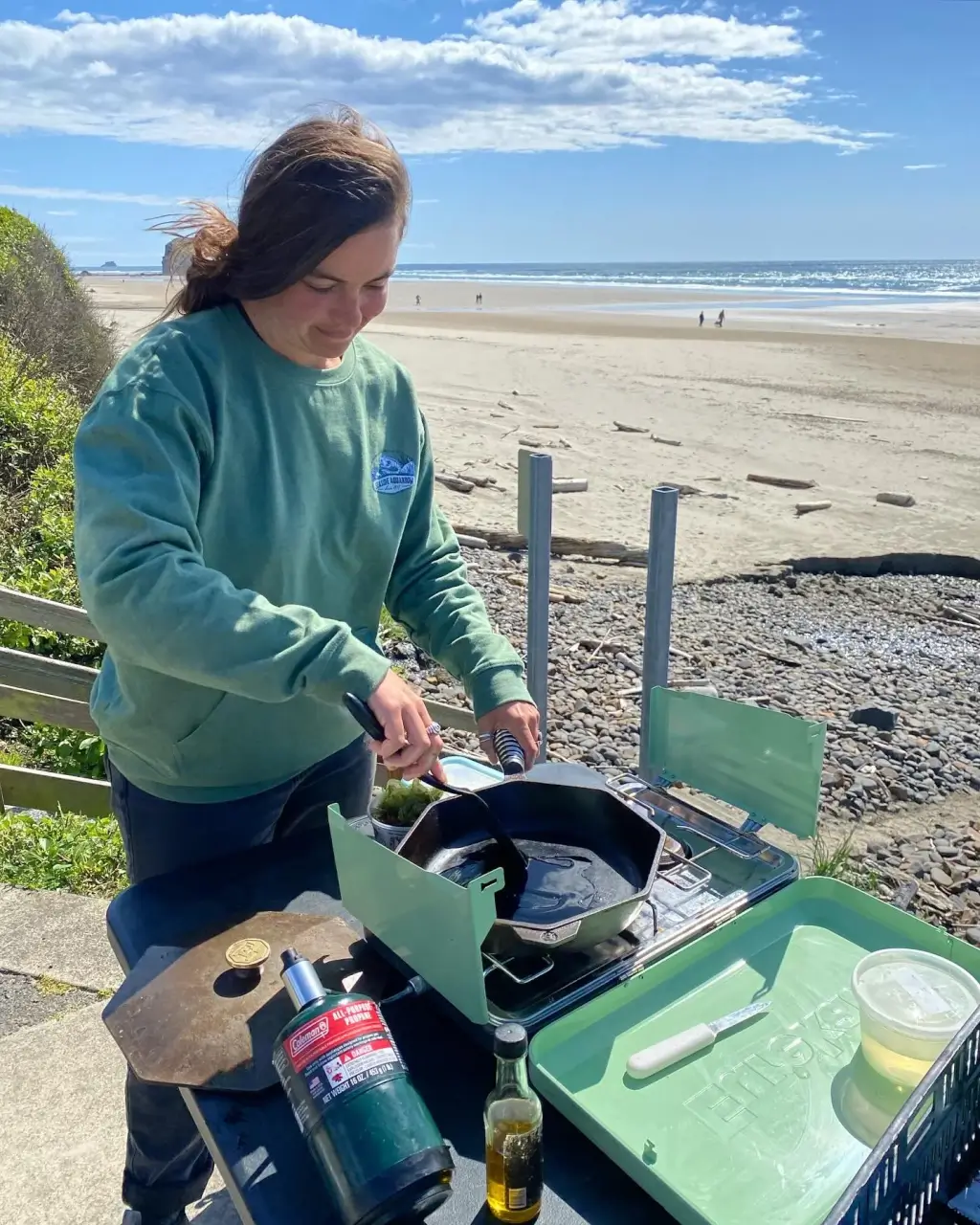

Kieffer’s schedule ebbs and flows counting on every the tides and the tourism season. In good local weather, she might need excursions scheduled 10 days in a row and a workshop every weekend. Each of her roles has its private specific obligations, nevertheless there are clear throughlines between them.
“Being that seaweed is a a lot much less in type meals in our custom, a great deal of my work with seaweed is educating people how and why to utilize it,” says Kieffer. “The topic of consuming seaweed is a segway into so many alternative excellent conservation efforts spherical meals.
“Regenerative aquaculture is giving once more to the setting, barely than merely taking from or having a neutral impression on it, and requires no or very minimal inputs to develop meals,” explains Kieffer. “Seaweeds, for instance, require daylight and pure nutritional vitamins; no freshwater, herbicides, or pesticides. They’re eradicating carbon dioxide from the water via the strategy of photosynthesis along with additional nutritional vitamins like nitrogen, which can have constructive outcomes on the native ecosystem.”


The dulse that Kieffer farms at Oregon Seaweed, for example, has the potential to sequester one pound of carbon for every 4 kilos of seaweed grown. Out throughout the wild, Kieffer harvests about 10 utterly completely different types of seaweed, along with: nori, kombu, wakame, sugar kelp, pepper dulse, and sea spaghetti. Various of these will in all probability be well-known to sushi lovers, nevertheless few people would know the place to buy the seaweed by itself, to not point out what it seems like in its pure kind.
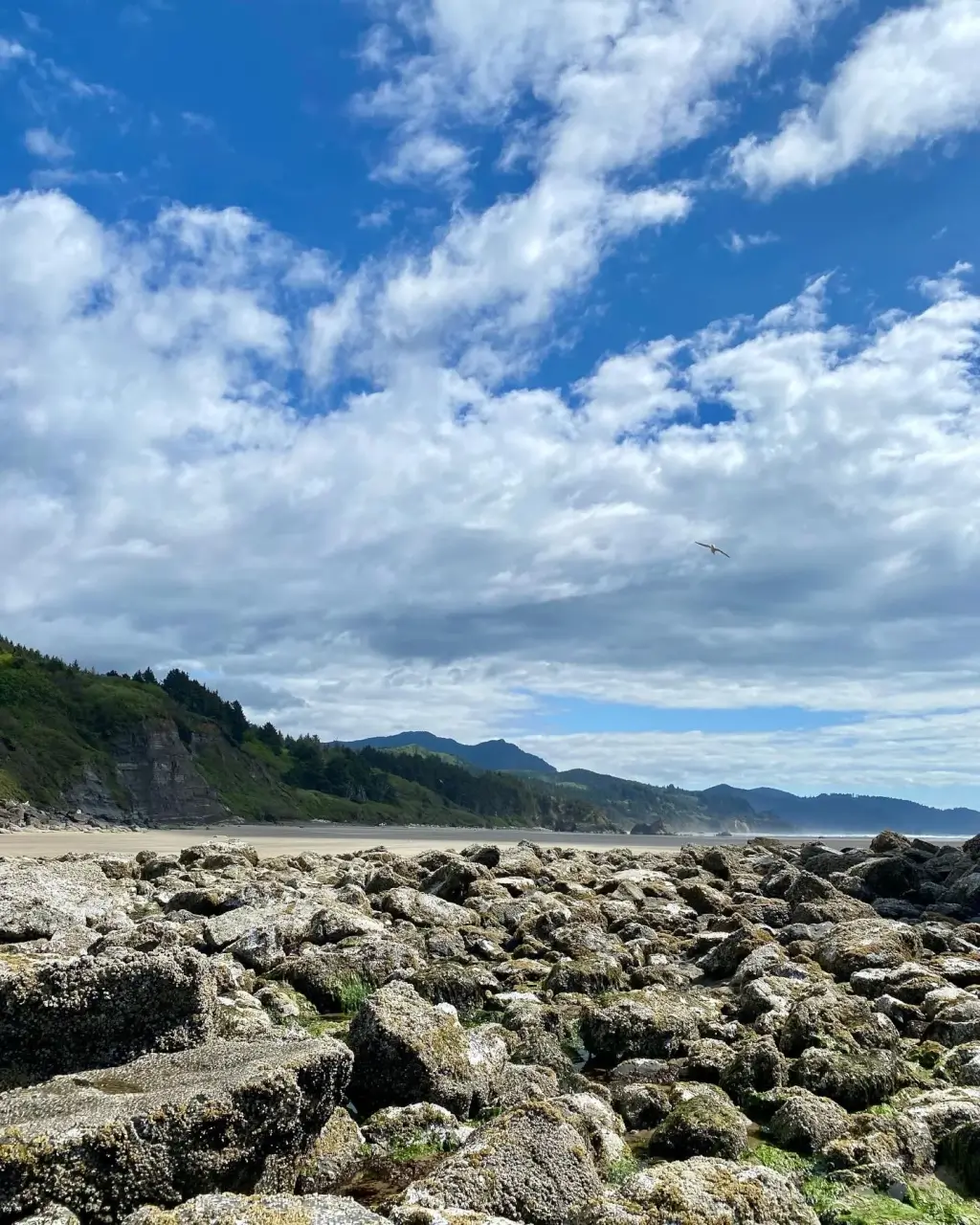

Given her sense of fine ease whereas navigating the hidden nooks and crannies of Cannon Seashore, I was shocked to be taught that it was not Kieffer’s native habitat. She was born in New York Metropolis and received right here to Oregon as a teen. Rapidly after, she began working for an environmental coaching agency throughout the intertidal ecosystems. She immediately fell in love.
“I grew up in a family of cooks, restaurant homeowners, cookbook editors, and whole meals lovers, so I was born with a deep connection to meals whether or not or not I observed it or not,” says Kieffer. “As rapidly as I moved to the seaside, I obtained away from meals service and began working alongside our oceans. I found so much about meals strategies and at last what goes into getting meals from the ocean to our plates.”
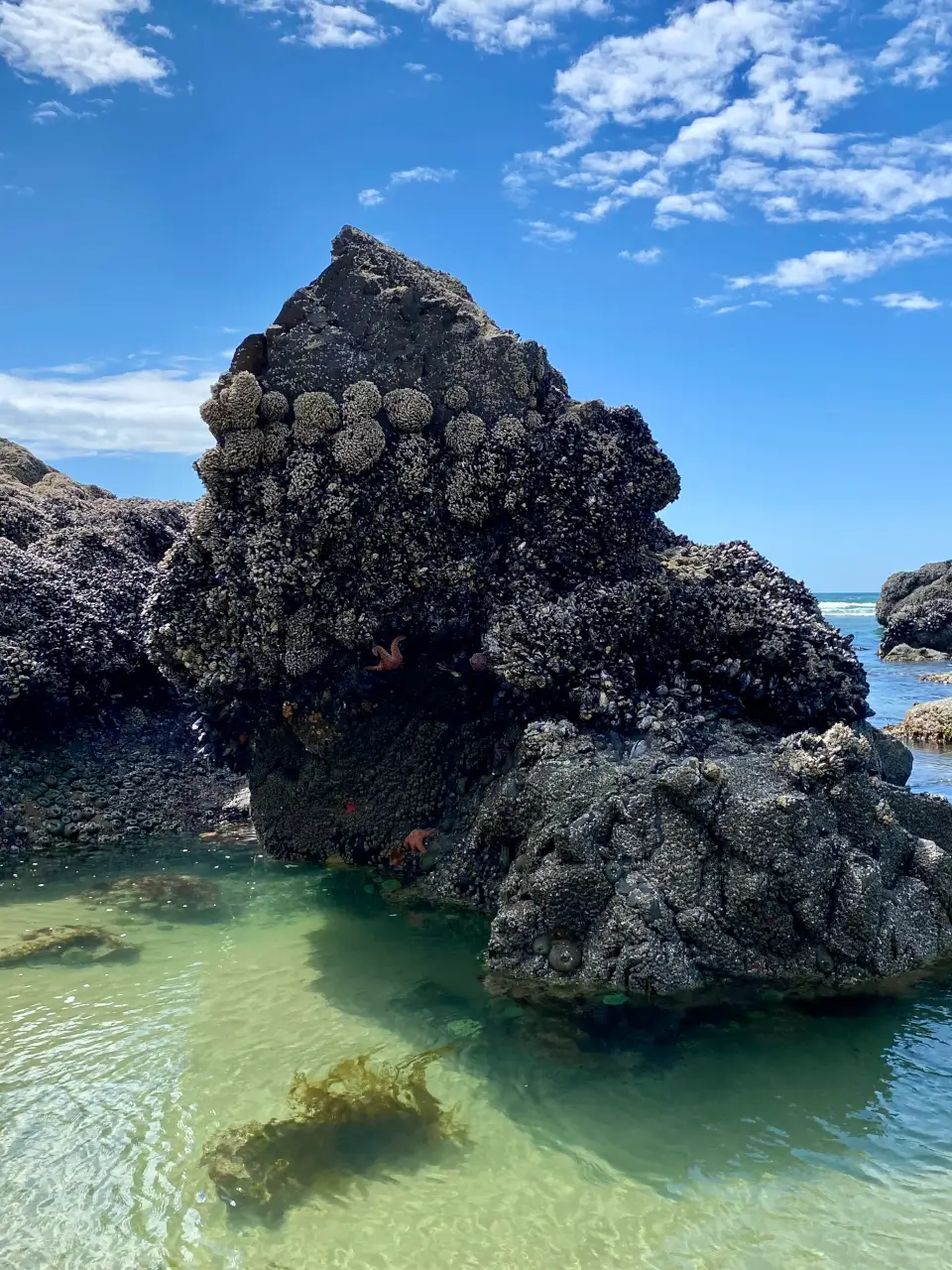

On my go to to Cannon Seashore, Kieffer recognized starfish smaller than my thumbnail suctioned to shells latched to the rocks spherical tide swimming swimming pools. She suggested me about sculpin (a sort of slender fish with a big mouth) that keep amongst sea lettuce and camouflage themselves to match their inexperienced hue.
Since founding Shifting Tides over a 12 months up to now, Kieffer has explored the ecosystems of the Pacific Northwest with people of all ages from in every single place within the nation. “At first, it was principally people from Oregon. Now, by partnering with some motels on the coast along with trip spot administration organizations, like Journey Oregon and Oregon Coast Friends Affiliation, I have been educating many people who aren’t from the world the least bit—college faculty college students from Wyoming, govt groups from Tennessee, {{couples}} from Texas.”


Whereas friends may not have entry to the similar precise wild seafoods as soon as they return home, they arrive away with an understanding of regenerative meals strategies that is related wherever.
“There are so many people working onerous to hold meals from the ocean to our desk in a implies that’s sustainable and helps coastal communities,” says Kieffer. “Telling tales of the people, practices, science, and conservation alongside our coast over a meal of foraged and farmed seaweeds can be a dream.”
Kieffer’s dream is the reality that we would like. As I watched her sautee seaweed on a conveyable seafoam inexperienced grill merely yards from the place we had harvested it, I felt a kind of hope that is rarer than a blue-sky day in Oregon. There is no single, straightforward restore for our meals system, nevertheless Shifting Tides reveals the dear work already being achieved and invites us to affix in.
